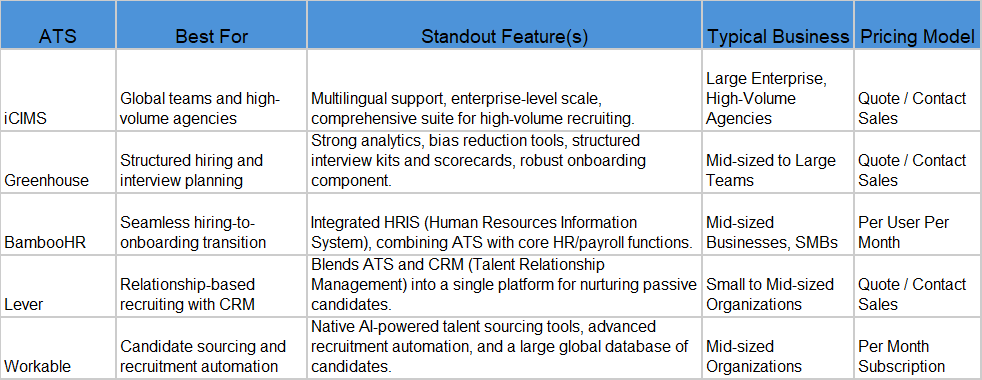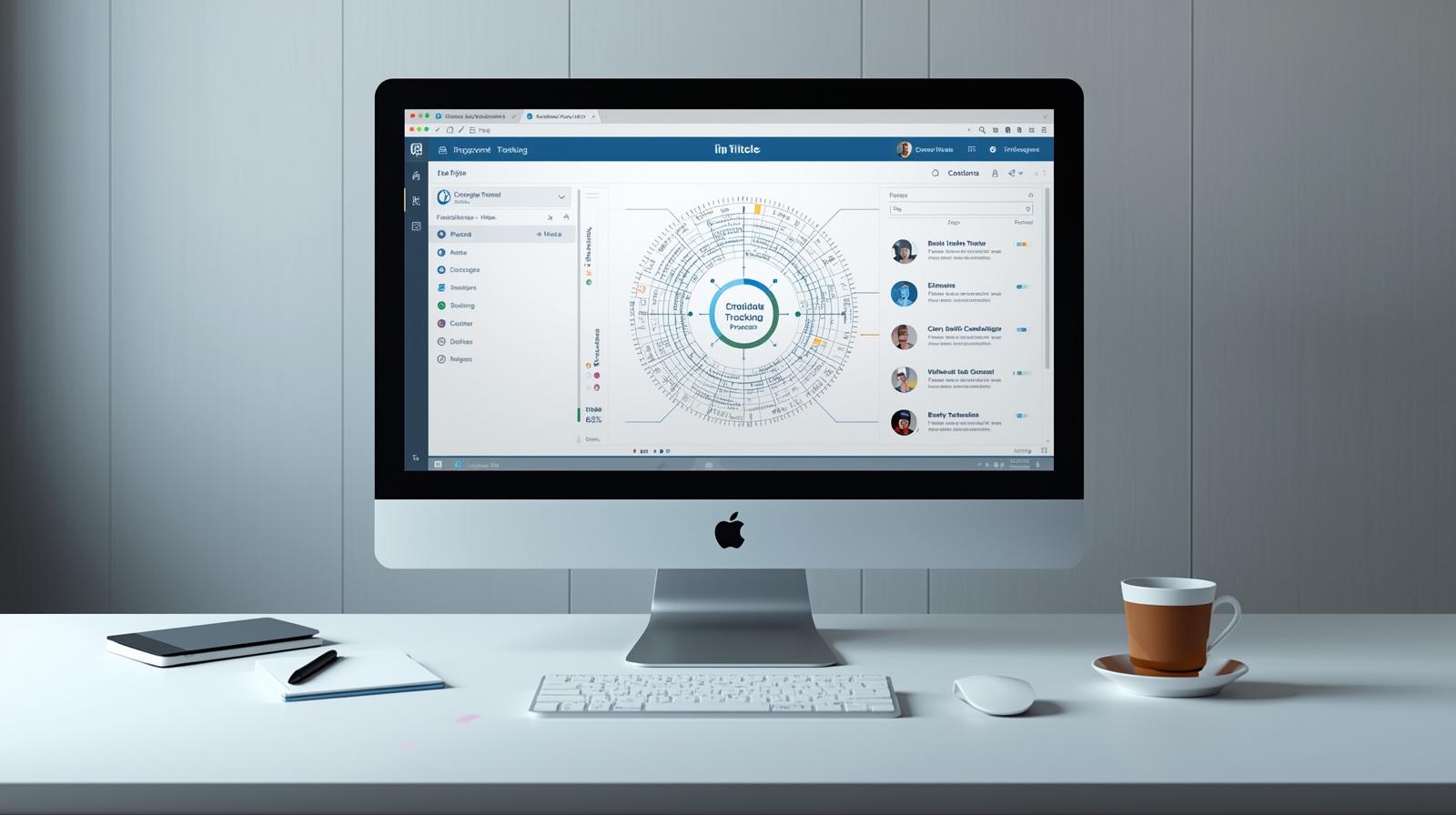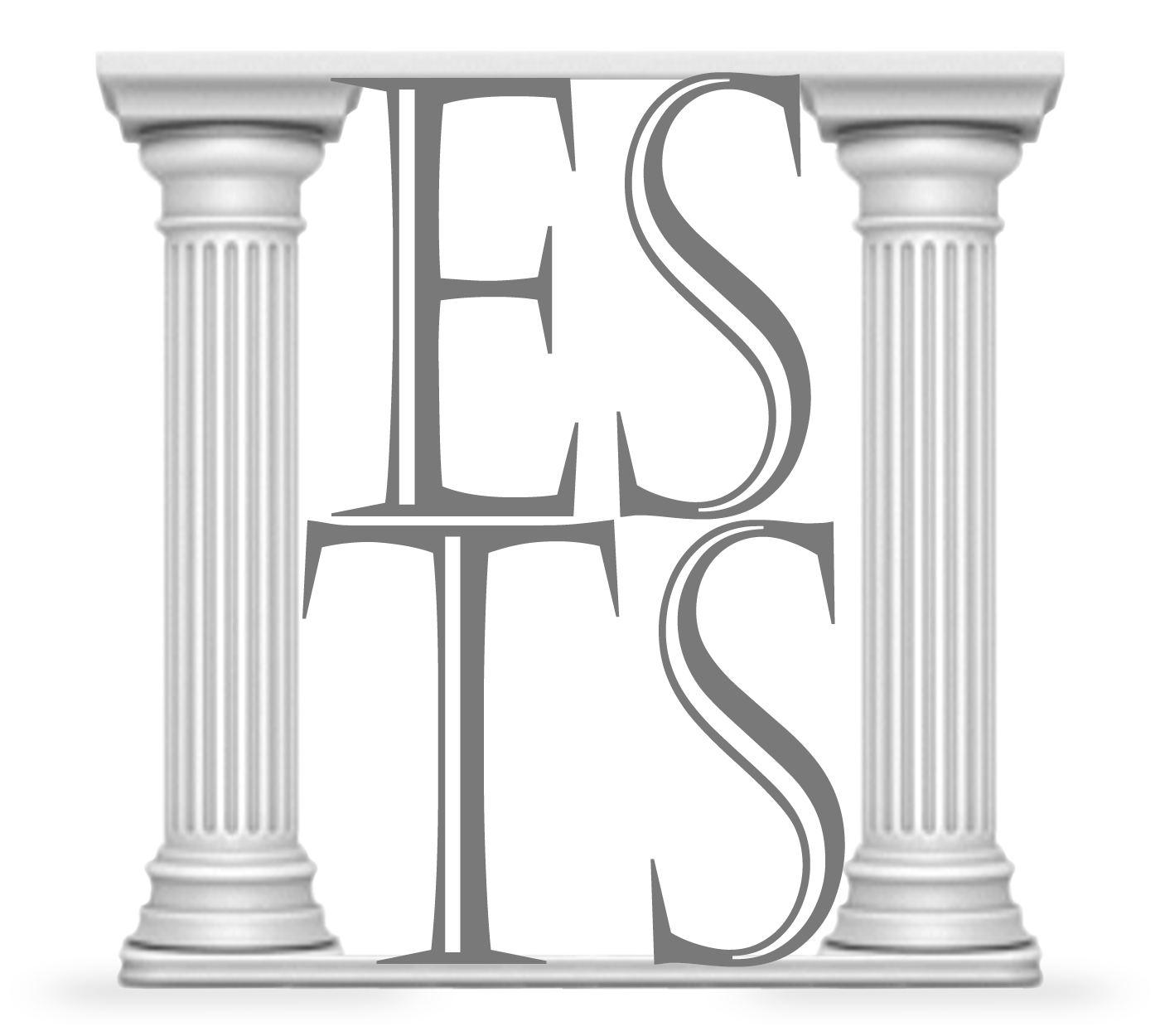With well over 20 years of experience, I remember the early days of recruiting with my only tools being phone, fax, and spreadsheet program. Thankfully, technology arrived and those days are long gone. But today there are so many different recruiting technologies, it’s difficult to understand if your company actually needs the product and, if so, how to choose the right one for your needs. ES Talent Solutions has conducted dozens of vendor assessments and sat in on many demonstrations to help navigate this space. Now is a good time to focus on the most important technology for corporate recruiting departments and attempt to answer the question, “How do I choose the right Applicant Tracking System for my company?”
What is an Applicant Tracking System (ATS) and why is it so important?
An ATS does what it states – tracks applicants through a company’s recruiting process. In a basic sense, it helps organize job opening information and prospects/candidates as they apply, interview, and get hired to roles. The ATS can play many other important roles for the company:
1️⃣ Assist in automating processes to make the entire recruiting process more efficient and improve the candidate experience.
2️⃣ Help provide a level of data security to protect important company and candidate information
3️⃣ Provide a record of information, including important job slate data for the government (required for most companies providing products/services to the federal government).
4️⃣ Organize different tasks, which may be executed in many places, all in the same place. This could include interview scheduling, employee referral programs, managing recruitment advertising spend, etc.
________________________________________
An applicant tracking system (ATS) is software for recruiters and employers to track candidates throughout the recruiting and hiring process
________________________________________
How to Choose the Right Applicant Tracking System (ATS) for Your Business
An Applicant Tracking System (ATS) can streamline your hiring process, saving time and resources. But with so many options on the market, choosing the right one can be daunting. Consider this information when making the decision.
🔹Define Your Needs
Before you start your search, it’s crucial to understand your specific needs. Consider the following:
• Company Size: A small business might need a simple (and less expensive!) system, while larger companies require something more complex.
• Hiring Volume: How many positions do you typically fill per year? If volume is high, and therefore the system will be used a lot, more automated features may be valuable
• Industry-Specific Requirements: Are there any industry-specific compliance or reporting needs? Government, Transportation, Life Sciences, and others have unique requirements that you may want the ATS to accommodate
• Desired Features: Do you need features like candidate sourcing, automated screening, interview scheduling, advertising management, or onboarding tools?
🔹Key Features to Look For
A good ATS should offer the following features:
• Candidate Database: A centralized database to store and manage candidate information is a given for every ATS.
• Job Posting: Easy-to-use tools to create and post job descriptions on various job boards. • Resume Parsing: Automated technology to extract relevant information from resumes.
• Candidate Screening: Features to filter and rank candidates based on specific criteria.
• Communication Tools: Tools to send and receive emails, schedule interviews, and track communication.
• Onboarding: Integration with HRIS systems to streamline the onboarding process.
• Reporting and Analytics: Detailed reports to track key metrics like time-to-fill and source of hire.
🔹Consider Your Budget
ATS solutions come in a wide range of prices, from free to enterprise-level solutions. Determine your budget and look for a system that offers the features you need within your budget. Do your research! There are a lot of systems and it’s not always easy to compare (“apples to oranges”) features vs total cost.
🔹Ease of Use
A user-friendly interface is crucial for both recruiters and hiring managers. Look for a system with a clean, intuitive design and minimal learning curve. This also becomes more critical if there are a lot of stakeholders interacting with the system (i.e. multi-department/country, recruiting/staffing vendors, etc.).
🔹Integration Capabilities
Your ATS should integrate seamlessly with your existing HR systems, such as your HRIS, CRM, or email. This integration can save A LOT! of time and reduce errors.
🔹Customer Support
I find clients often forget about this critical aspect of ATS products. Reliable customer support is essential, especially when you encounter issues or have questions. Look for a provider that offers prompt and helpful support. ATS widely differ in the approach to customer support.
🔹Security and Compliance
Ensure that the ATS provider prioritizes data security and compliance with industry regulations like GDPR and HIPAA.

Comparing popular Applicant Tracking Systems
By carefully considering your needs, researching available options, and focusing on key features, you can choose the right ATS to streamline your hiring process and improve your overall recruiting efforts. With the importance your ATS holds in the company, devoting the right amount of time to choosing the appropriate one is critical.
If you would like more information on this topic, visit Gartner Peer Insights ATS Reviews and Ratings or Forbes Best Applicant Tracking Systems of 2025.
ES Talent Solutions works with companies to do vendor assessment, vendor selection, and implement new technologies. We provide client-side project leadership to eliminate hidden costs and allow customers to get the most out of their recruiting platform. Want to understand how these activities could improve recruitment at your company? Contact Eddie Stewart at estewart@ESTalentSolutions.com. I always enjoy talking with fellow recruiting leaders about what’s working and what challenges you’re facing.




0 Comments
Optimizing Your Corporate Goals: A Personal Wellness Guide for 2026 (Part 1)
When planning for 2026, don't forget to include personal wellness goals in your plan
Client Dilemma – The Case of the Missing Talent
A mysterious client asks ESTS to solve a common recruiting issue
Is December a Good Hiring Month?
While some believe December is a slow hiring month, there are advantages to keeping your interviewing active during the holidays.